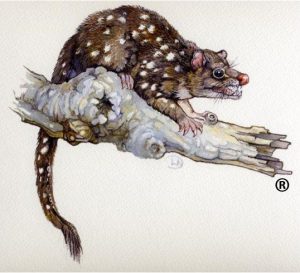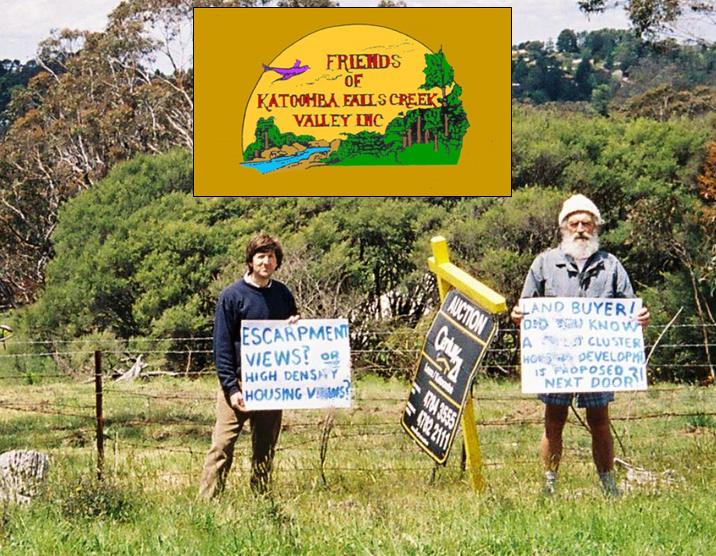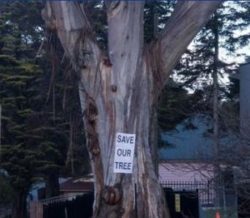Live animal trade is barbaric and immoral
Tuesday, November 6th, 2012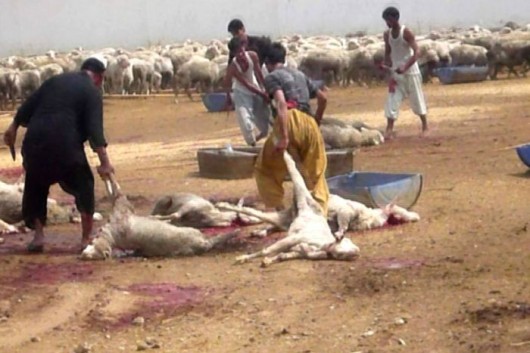 Pakistani animal handling barbarism – business as usual
Pakistani animal handling barbarism – business as usualAustralia’s Agriculture Minister claims the latest Pakistani incident is (unlike Indonesia) isolated and so he is ‘comfortable’?
.
Australia’s Agriculture Minister, Senator Joe Ludwig, says Australia’s live export program works well and will continue, despite the brutal culling of up to 10,000 Australian sheep in Pakistan in recent weeks.
Senator Ludwig said his department would conduct a full investigation into the latest animal welfare incident, in which thousands of Australian sheep were clubbed, stabbed and buried alive in the town of Karachi on suspicion they were diseased with anthrax and salmonella.
“(Live exports) continues to be a very good trade for Australia. It continues to support jobs and opportunity in rural Australia, it continues to provide employment. All of that means that it is an effective trade and quite a good trade,” Senator Ludwig told ABC radio.
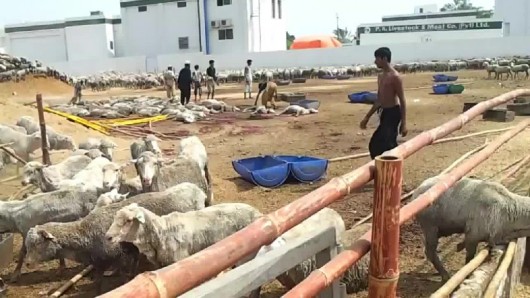 Middle East profitable markets for Australian Sheep – no wonder!
Middle East profitable markets for Australian Sheep – no wonder!
Video has emerged of thousands of Australian sheep being brutally culled in Pakistan with the export company that transported the animals, Wellard, describing it as “disturbing”.
A total of 21,000 sheep arrived in Karachi earlier this month after they were given a positive health check by Pakistan and Australian government officials. They were originally destined for Bahrain but were rejected by the Arab kingdom after they were found to have the common scabby mouth disease.
Local authorities in Karachi said the culling of up to 10,000 sheep was ordered because (they claimed) the animals had salmonella and anthrax.
The owner of the sheep PK Livestock has lodged a court injunction to prevent the remaining animals being killed and a ruling on their future is due to be handed down today.
The owner, and Australian officials, have questioned the finding that the animals were diseased.
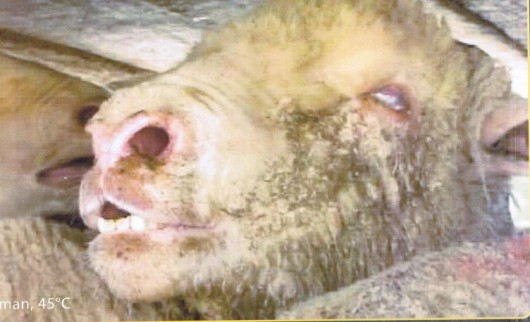 2007: Australian Sheep dying under 45 Degrees Celsius under Oman sheep traders
2007: Australian Sheep dying under 45 Degrees Celsius under Oman sheep traders
.
Paul Morris, acting deputy secretary of the Department of Agriculture, Forestry and Fisheries, said this morning if the animals had been infected with anthrax they would have died within 48 hours and so any potential disease could not have come from Australia.
“From our view point when the animals left Australia they were perfectly healthy, they certainly had no major diseases,” Mr Morris told ABC radio.
“When they arrived in Bahrain and even before that when they were offloaded in Oman there were certainly no issues. We had a vet on board all the way through who was checking the health and the animals seemed fine throughout the voyage.
“If they did have anthrax they would have died or they would have contracted it in Pakistan rather than during the voyage or before they left Australia.”
.
[Source: ‘Appalling’ sheep cull in Pakistan won’t halt trade, says Joe Ludwig’, by Lanai Vasek, The Australian (national newspaper), 20120928, ^http://www.theaustralian.com.au/national-affairs/appalling-sheep-cull-in-pakistan-wont-halt-trade-says-joe-ludwig/story-fn59niix-1226483226375].
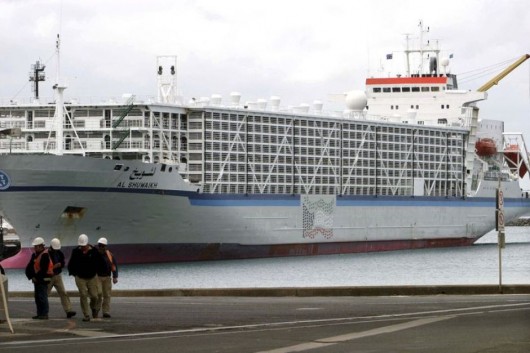 Portland – Australia’s hub of Agricultural Immorality
Portland – Australia’s hub of Agricultural Immorality
.
Australian Agriculture – live up to Australian moral standards!
Since industry self-regulation can’t be trusted, ban all live animal export!
.
.
Further Reading:
.
[1] ‘Another Bloody Business‘, by Sarah Ferguson and Deb Masters (investigative journalists), Australian Broadcasting Corporation, Four Corners Programme (TV), 20121107, ^http://www.abc.net.au/4corners/stories/2012/11/02/3623727.htm
.
[2] ‘Live Animal Export Indefensible‘, Animals Australia, ^http://liveexport-indefensible.com/
.
[3] Animals Australia main website, ^http://www.animalsaustralia.org/
.
[4] Australian Government principles on Live Animal Export, Department of Agriculture, Fisheries and Forestry, ^http://www.daff.gov.au/animal-plant-health/welfare/export-trade
(Reproduced as follows…before the government website is deleted)
.
Live Animal Export Trade
The live export industry is an important part of Australia’s vibrant and growing livestock industry. In 2009 the live export sector earned $996.5 million and underpinned the employment of around 10 000 people in rural and regional Australia.
Australia leads the world in animal welfare practices. The Australian Government does not tolerate cruelty towards animals and will not compromise on animal welfare standards. Our ongoing involvement in the livestock export trade provides an opportunity to influence animal welfare conditions in importing countries.
The government and the livestock export industry are working cooperatively with our trading partners to address post-arrival welfare concerns and to improve the transportation, handling and slaughter practices of livestock in overseas markets. The Department is jointly funding a number of projects with the live export industry to improve infrastructure and training to promote better animal handling and slaughter practices. Australia is the only country that requires specific animal welfare outcomes for livestock exports. Our ongoing involvement in this trade provides an opportunity to influence animal welfare conditions in importing countries.
In 2003 a broad-ranging investigation into Australia’s livestock export industry chaired by Dr John Keniry recommended a range of initiatives to improve animal welfare conditions in the livestock export trade including better infrastructure to reduce livestock stress or injury and training for feedlot, abattoir and transport staff in overseas markets.
In the 2009-10 Budget, the government announced the Live Trade Animal Welfare Partnership, which will invest $3.2 million over three years, including $1.6 million from the government with matching support from Australian producers and livestock exporters to further improve animal welfare in, and support trade with, overseas markets. The Government has also introduced legislation that provides stronger regulation of the livestock export industry. This includes a requirement to comply with the Australian Standards for the Export of Livestock.
This legislation was an important step by the Government to overhaul the livestock export trade. Arrangements to ensure exported animals are well treated during road and sea transportation are an important part of the standards. Ships must comply with strict rules about ventilation, drainage and provision of water and food. Each animal must have access to food and water on demand and enough space to lie down, and there must be special pens for sick animals to receive veterinary care.
Under the Australian Meat and Live-stock Industry Act 1997, a report on the carriage of livestock on any sea voyage to a port outside of Australia must be tabled in each House of Parliament every 6 months. The reports to Parliament are based on the total voyage mortalities for each voyage. Some voyages include several consignments for different exporters, so it is possible for a consignment to experience a high mortality incident, but for the outcome of other consignments on the same voyage to be under the reportable mortality level. For this reason, some of the consignment mortality events may not appear in the report to Parliament, which is tabled every six months.
The Australia Quarantine and Inspection Service (AQIS) investigates all consignments which record a reportable mortality event.
A reportable mortality event occurs in a consignment if the mortality rate is equal to, or exceeds, the reportable level specified in the Australian Standards for the Export of Livestock (ASEL). For cattle, sheep and goats these levels are:
- Sheep and goats: 2%
- Cattle voyages greater than or equal to ten days (long haul): 1%
- Cattle voyages less than ten days (short haul): 0.5%
More information about AQIS mortality investigations.
Mortality rates have fallen in recent years. Between 2000 and 2010 the average mortality rate for short haul cattle fell from 0.09% to 0.04%, the average mortality rate for long haul cattle from 0.42% to 0.28%, the average mortality rate for sheep has fallen from 1.34% to 0.91% and the average mortality rate for goats has fallen from 1.98% to 0.69%. The government’s policy is to bring about further improvements.
Australia has signed Memoranda of Understanding (MOU) with ten countries in the Middle East and Africa region and negotiations continue with other trading partners in the region. A key element of these MOUs is that animals be unloaded on arrival regardless of their health status. The MOUs also allow us to help our trading partners improve post arrival handling and slaughter through cooperative activities based around improving animal welfare.
Australia has also signed an MOU with Egypt on Handling and Slaughter of Australian Live Animals. This MOU requires that international animal welfare standards be applied to the handling of Australian livestock (sheep and cattle) as well as some specific handling requirements for Australian cattle.
Suggestions that the live trade could be completely replaced by chilled and frozen meat fails to take into account the requirements of the market. While Australia has developed a significant trade in meat products, the lack of refrigeration and cold chain facilities, as well as strong cultural preferences for freshly slaughtered meat precludes Australia from servicing all of its export markets with processed meat products.
.
Australian Government Action on Live (animal) Exports
[Source: ^http://www.liveexports.gov.au/ ].
- 5 November 2012: Statement regarding ABC Four Corners program
- 29 September 2012: Update on state of sheep being held in Pakistan feedlot
- 27 September 2012: Update on state of sheep being held in Pakistan feedlot
- 24 September 2012: Update on state of sheep being held in Pakistan feedlot
- 24 September 2012: Western Australia and South Australia exporters granted approval to export sheep and cattle to Middle East
- 19 September 2012: Update on information regarding sheep exports to Pakistan
- 18 September 2012: Updated Statement on Sheep Exports to Pakistan
- 18 May 2012: Footage investigation report released
- 8 March 2012: Approved Supply Chain Improvements Program applications are now open
- 1 March 2012: Investigation into alleged breaches of animal welfare
- 29 February 2012: Commencement of the new orders giving effect to the new regulatory framework for livestock exports
- 28 February 2012: Submissions on the orders giving effect to the new regulatory framework for livestock exports
- 24 February 2012: Media statement on alleged animal welfare concerns at two Indonesian abattoirs
- 3 January 2012: Orders giving effect to the new regulatory framework for livestock exports
- 21 October 2011: Gillard Government reforms live export trade
- 18 October 2011: Australian exporters take to new regulatory framework in droves
- 6 September 2011: Live export assistance
- 24 August 2011: Chief Vet completes assessment of cattle restraint boxes
- 24 August 2011: Minister welcomes Chief Vet’s report
- 21 August 2011: Sheep unloaded off live export ship Al Messilah
- 18 August 2011: Al Messilah sheep welfare ensured
- 18 August 2011: Ministerial statement about new video footage
.
‘Minister Ludwig’s letter to Animals Australia’
Senator the Hon. Joe Ludwig
Minister for Agriculture, Fisheries and Forestry
Senator for Queensland
Ms Glenys Oogjes
Executive Director
Animals Australia
37 O’Connell Street
North Melbourne VIC 3051
17 October 2012
Dear Ms Oogjes
I am aware that Animals Australia has established the ‘Forgotten animals of live export’ campaign to highlight the animal welfare issues your organisation would like to see dealt with by federal, state and local governments. The key issues identified on your website are about the regulations for exporting breeder animals.
As you are aware, the health and wellbeing of exported livestock is a priority for the Australian Government.
The Independent Review of Australia’s Livestock Export Trade undertaken by Mr Bill Farmer AO recommended that the Australian Government should articulate an approach to the question whether there is a need for any additional conditions for the export trade in breeder livestock.
At the heart of the issue is a judgement about when livestock exported from Australia become the responsibility of the importing country. Livestock that are exported for breeding purposes mix with the importing country’s domestic herd and attain local animal health status. Currently these animals are considered to be beyond Australia’s jurisdiction.
The Department of Agriculture, Fisheries and Forestry is working with key stakeholders to undertake a review of the arrangements for the export of breeder livestock. Issues around breeder livestock exports are complex, particularly with some animals living as breeder livestock in foreign countries for many years. Nonetheless it is important to ensure that this is not used as an excuse for poor animal welfare outcomes.
The Review has commenced by gathering information about the nature of the trade, including regulatory and commercial arrangements in each of the markets that receive Australian breeder livestock. To better understand the risks of the trade, the Review will look at the complexities of each market, for example whether livestock go to a breeding facility or are more widely distributed. The Review will also seek more robust information on the price differential between livestock exported for slaughter and livestock exported for breeding to better understand the level of risk if livestock exported for breeding purposes end up in the feeder/slaughter supply chain.
The Department of Agriculture, Fisheries and Forestry will work closely with industry to progress this work and the Industry-Government Implementation Group (IGIG) will present the final report to me later this year.
On 6 September 2012, the Department of Agriculture, Fisheries and Forestry received a complaint from a third-party that claims poor animal welfare practices in exported Australian Breeder livestock in Qatar. The current regulations for the export of breeder livestock extends to the point of disembarkation and are not currently covered by the Exporter Supply Chain Assurance (ESCAS) arrangements in place for the export of feeder/slaughter livestock.
Notwithstanding the limitation of the current regulatory framework for the export of breeder livestock, the Department of Agriculture, Fisheries and Forestry is investigating the complaint, which includes further information provided by the RSPCA on 17 September 2012. The Department of Agriculture, Fisheries and Forestry will advise the outcomes of the investigation once the process is completed.
This information is provided so that you may inform your members and interested others of the Government’s position on these animal welfare matters.
This letter will be made available on the Department of Agriculture, Fisheries and Forestry website. The Government will not be responding directly to campaign correspondence arising from the Animals Australia website.
I trust this information is of assistance.
Yours sincerely
[signed]
Joe Ludwig
Minister for Agriculture, Fisheries and Forestry
Senator for Queensland
.
‘Investigation into alleged breaches of animal welfare’
1 March 2012
[DAFF 12/6D]
Statement by Deputy Secretary, Department of Agriculture, Fisheries and Forestry, Phillip Glyde.
<<The Department of Agriculture, Fisheries and Forestry (DAFF) is continuing to investigate a complaint of alleged animal welfare concerns at three* Indonesian abattoirs.
The complaint was submitted by Animals Australia on Friday 24 February 2012 and included video footage.
As part of the new Exporter Supply Chain Assurance System (ESCAS) for live animal exports, procedures are in place to investigate allegations of animal welfare breaches and to take appropriate action where required.
DAFF animal welfare experts, including Australia’s Chief Veterinary Officer, are assessing the footage for compliance with the World Organisation for Animal Health (OIE) animal welfare guidelines.
DAFF is working to ascertain if the animals in the footage are from Australia and if the facilities in the footage are part of approved supply chains.
The investigation also includes assessing any relevant independent audits of the three abattoirs to compare with the detail of the footage provided.
The Guidelines for management of non compliance is being used to guide the investigation and potential actions on the licensed exporters. Possible compliance actions will depend on the findings of the investigation.
The Australian and Indonesian Governments are cooperating closely to ensure that the investigation process is followed according to the mutual understanding between the two governments.
DAFF has provided the footage to the Indonesian government.
DAFF was informed yesterday, 29 February 2012, that an exporter has voluntarily suspended the supply of animals to one facility which has been part of an approved supply chain. The Indonesian Government has been notified of this development. DAFF continues to investigate the facilities shown in the footage provided to the department to determine if any Australian animals were being processed and will assess if there has been a breach of the new regulatory framework.>>
